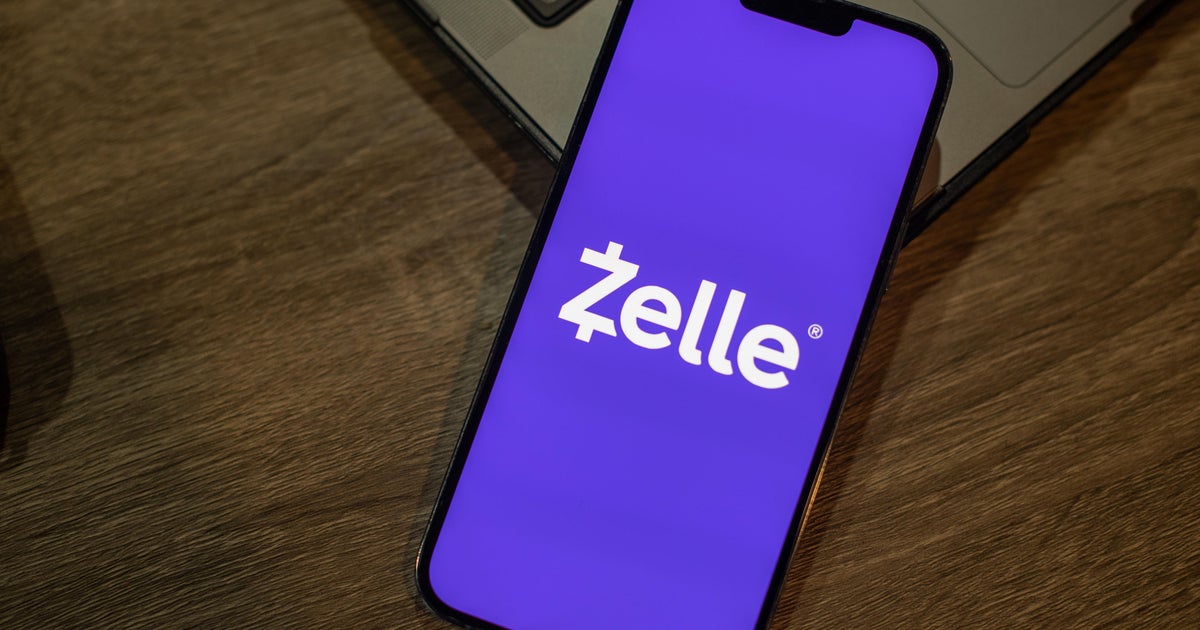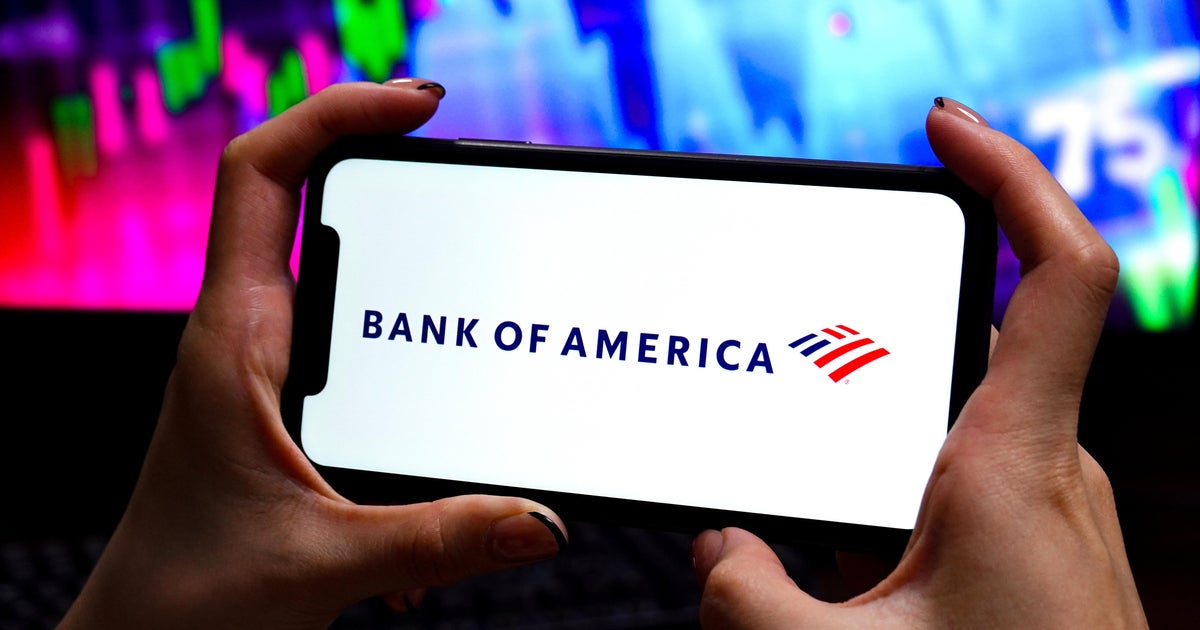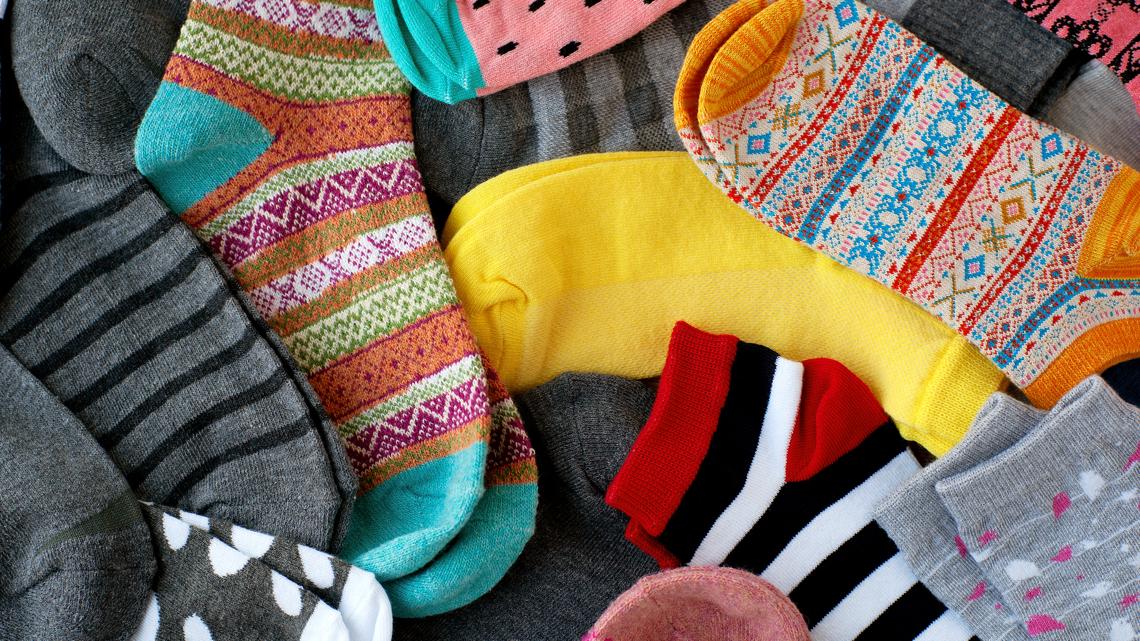CBS News
Feds sue Zelle, alleging that nation’s biggest banks failed to stop fraud

Three Major banks and Zelle rushed to bring a peer-to-peer payment network to market without first ensuring users would be protected against “widespread” fraud, alleges a lawsuit filed on Friday by the Consumer Financial Protection Bureau.
Bank of America, JPMorgan Chase and Wells Fargo ignored customer complaints related to Zelle, users losing hundreds of millions of dollars in scams, the regulatory agency alleges. Zelle is run by Early Warning Services, which is owned by the three banks named in the CFPB’s suit, along with four other financial institutions.
According to the CFPB, bank customers have lost more than $870 million over the seven years Zells has been in operation. Early Warning and the three banks named in the complaint hastily created the payments network to head off rival payment apps including Venmo and CashApp without adequately protecting end users, the suit alleges.
“The nation’s largest banks felt threatened by competing apps, so they rushed to put out Zelle,” Rohit Chopra, the CFPB’s director, said in a statement. “By their failing to put in place proper safeguards, Zelle became a gold mine for fraudsters, while often leaving victims to fends for themselves.”
Zelle blasted the CFPB’s accusations as “legally and factually flawed,” with a spokesperson also suggesting the timing of the suit as “driven by political factors unrelated” to the company.
JPMorgan also accused the agency of pursuing a “political agenda,” stating that the agency was “overreaching its authority by making banks accountable for criminals, even including romance scammers.”
JPMorgan Chase said it prevents nearly $20 billion in fraud attempts each year, and that 99.95% of its transactions are completed without dispute.
A spokesperson for Wells Fargo declined to comment. Bank of America did not immediately respond to a request for comment.
Offered by more than 2,200 banks and credit unions, Zelle has more than 143 million users in the U.S., according to the suit. Customers transferred a total of $481 billion in conducting 1.7 billion transactions during the first half of 2024, the CFPB noted.
Hundreds of thousands of customers filed fraud complaints and were denied assistance by Zelle and the three banks, according to the suit, which noted that some people were advised to contact those behind the fraud to get their money back.
Zelle “has been slow to implement anti-fraud measures, including closing accounts accused of fraud,” Jaret Seiberg, an analyst with TD Cowen Washington Research Group, said in a report, pointing to the CFPB’s allegations. “It also permitted the registration of emails that were impersonating legitimate entities, including Zelle itself.”
Since Zelle launched in 2017, according to the CFPB, JPMorgan Chase received 420,00 customer complaints involving more than $360 million; Bank of America heard from 210,000 customers with more than $290 million in fraud losses; and Wells Fargo tallied $220 million in fraud losses by 280,000 people.
In 2023 Early Warning began refunding money to an undisclosed number of fraud victims amid pressure from lawmakers. In late 2022, Sen. Elizabeth Warren issued a report that found increasing incidents of fraud and scams to be occurring on the popular payment app, with large banks typically reluctant to compensate victims, the Massachusetts Democrat said.
CBS News
What we know about the suspect in deadly car crash at German Christmas market

Watch CBS News
Be the first to know
Get browser notifications for breaking news, live events, and exclusive reporting.
CBS News
House begins debate on new funding bill after previous vote failed

Watch CBS News
Be the first to know
Get browser notifications for breaking news, live events, and exclusive reporting.
CBS News
Here’s how much more it will cost to heat your home this winter

Americans are expected to spend more money heating their homes this winter than on holiday gifts, according to new research.
The elevated cost of staying warm indoors amid cold outdoor temperatures comes after an unusually hot summer, that led to households spending bigger shares of their budgets on cooling costs, compared with previous years, according to a report from the National Energy Assistance Directors Association (NEADA).
On average, spending on home heating this winter is projected to increase by 8.7% to $941, up from $866 last winter. The increased costs are attributed in part to both expected colder temperatures in the Northeast and Midwest states.
The new average expenditure on heating costs outpaces the $902 the average household is expected to spend on Christmas presents this year, according to a forecast from the National Retail Federation.
What’s driving up home heating costs?
There are different ways to keep residences warm. Families that use electricity to heat their homes are expected to face the largest increase in costs — more than 14% — which will bring the total up to $1,189 from $1,040 from mid-November through mid-March, which NEADA considers to be the winter period.
Driving up prices is the rising cost of updating and maintaining the electric grid. Plus, colder weather is expected to lead to increased consumption.
“It’s colder, and the cost of electricity is up as the grid is rebuilt. So we’re seeing both higher prices and greater usage,” NEADA Executive Director Mark Wolfe told CBS MoneyWatch.
Natural gas, propane and heating oil cost differences
Natural gas and propane users are also expected to be hit with bigger bills this winter. Heating costs for natural gas are up just over 3%, for an average cost of $634 for the winter period, compared with $615 for 2023-2024. Costs are expected to rise only modestly in line with wholesale prices.
Propane costs are up 4.4%, with families expected to spend an average of $1,231 heating homes, up from $1,179 last season.
Heating oil costs, by contrast, have declined 2.7%, which means average spending this winter will be $1,518, down from $1,560 last winter.
Early start to the season
November was colder than usual, with temperatures dropping prematurely after a “very expensive summer” of heat waves straining cooling resources, said Wolfe.
Blame climate change for the big swings in temperature, he added.
“Weather conditions can be very unpredictable even though over time, winters are getting warmer and summers are getting hotter. It’s not a straight line, and for consumers, it’s quite upsetting because higher utility bills are coming right before Christmas,” Wolfe said.
Steps to take now
There are steps consumers can take to help keep a lid on home heating costs.
Wolfe urges people to have their thermostats serviced now, before the coldest temperatures of the season roll in. That way, families won’t be on the hook for an emergency repair if their thermostat breaks in the middle of a cold front. A tune-up will also help heating systems run more efficiently, he said.
Always close the furnace flue, or else it will lead heat outside the house, advises Wolfe. Lastly, manually turn down the heat at night, if you can, to save up to 10% on your energy bill.







